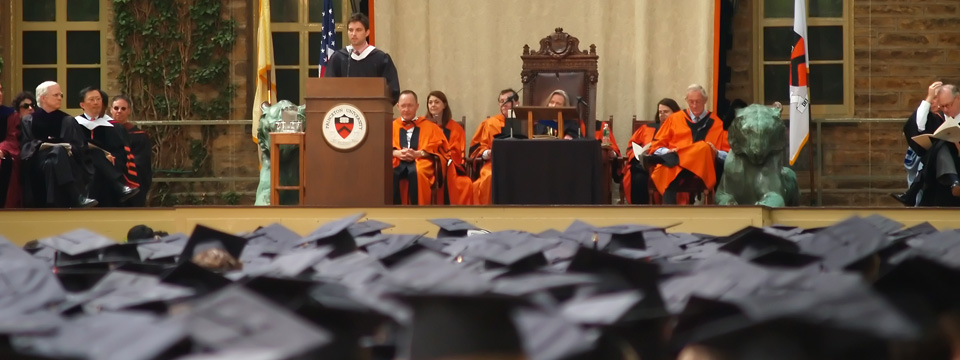I would love to say that Admission is a film with extreme and natural character development and a film where Tina Fey dazzles audiences alongside co-star Paul Rudd, but it is a film with Tina Fey and Paul Rudd.
Portia Nathan (Tina Fey) is an admission officer for Princeton University; she lives with her boyfriend of ten years, has no children, and is rather complacent. While speaking to high school students on a tour around the northeast, she visits “Quest School,” directed by John Pressman (Paul Rudd) and meets Jeremiah (Nat Wolff), an unassumingly intelligent student at Quest.
Admission is an adaptation of Jean Hanff Korelitz’s novel Admission. Adapted by Karen Croner (after a 15 year hiatus), this film lacks in the story department. Admission forces character development and prods the story to advance in a way that is unfamiliar with novel adaptations and is clearly carried by the cinematography of Declan Quinn.
Whether it is by encouraging students to change the world through Princeton or teaching students how to create sustainable irrigation at Quest School, a common theme throughout Admission is doing good, though never in conjunction with anything religious. With a few curse words sprinkled throughout the film, the most awkward and unnecessary scene consists of a conversation between Fey and Rudd while they are each taking a shower in separate stalls. The viewer sees only their head and shoulders, but with no advancing dialogue, this uncomfortable scene is pointless.
This film also has an excessive amount of cursing. Christians may feel too uncomfortable with the amount of swear words and it likely is not appropriate for teens. Further, the cohabitation portrayed in the plot sends the wrong message.
Aforementioned, the cinematography makes this film. Beautiful wide shots and deep focus break from the current mold of movies, but the technique used to give the allusion of a student being in the room while being weighed for admission was most clever. Each student appears in the office of Portia Nathan while she is reading their file, though not physically. Instead of Portia reading each student’s file aloud (unnatural), the figments of the students allow them to present themselves to Portia. Later while using this same effect, each student stands silent before the admission officers as they accept or deny admission to Princeton and upon denial, the floor opens and the student falls through.
Throughout Admission, the common theme of doing good is coupled with the fear of rejection. Introduced by students fearing denial to Princeton, the chance of rejection continues by resting on Portia. She fights for a job, is dumped by her boyfriend, gets pushed away by her mother and embodies the impending rejection of Jeremiah to Princeton.
Admission doesn’t try to make the viewer feel good by its conclusion; instead, it presents the idea of compromise and rejection as faced by people in real life, but with the only spiritual element consisting of a reference to Buddhism, the characters are left with only the hope of acceptance and success instead of faith in God.
Admission (Paul Weitz, 2013) PG-13 – 6/10 stars
Editor’s note: The writings and opinions expressed on Word Slingers do not necessarily reflect those of the editorial staff or affiliated parties. For more detailed movie content information, click here.
